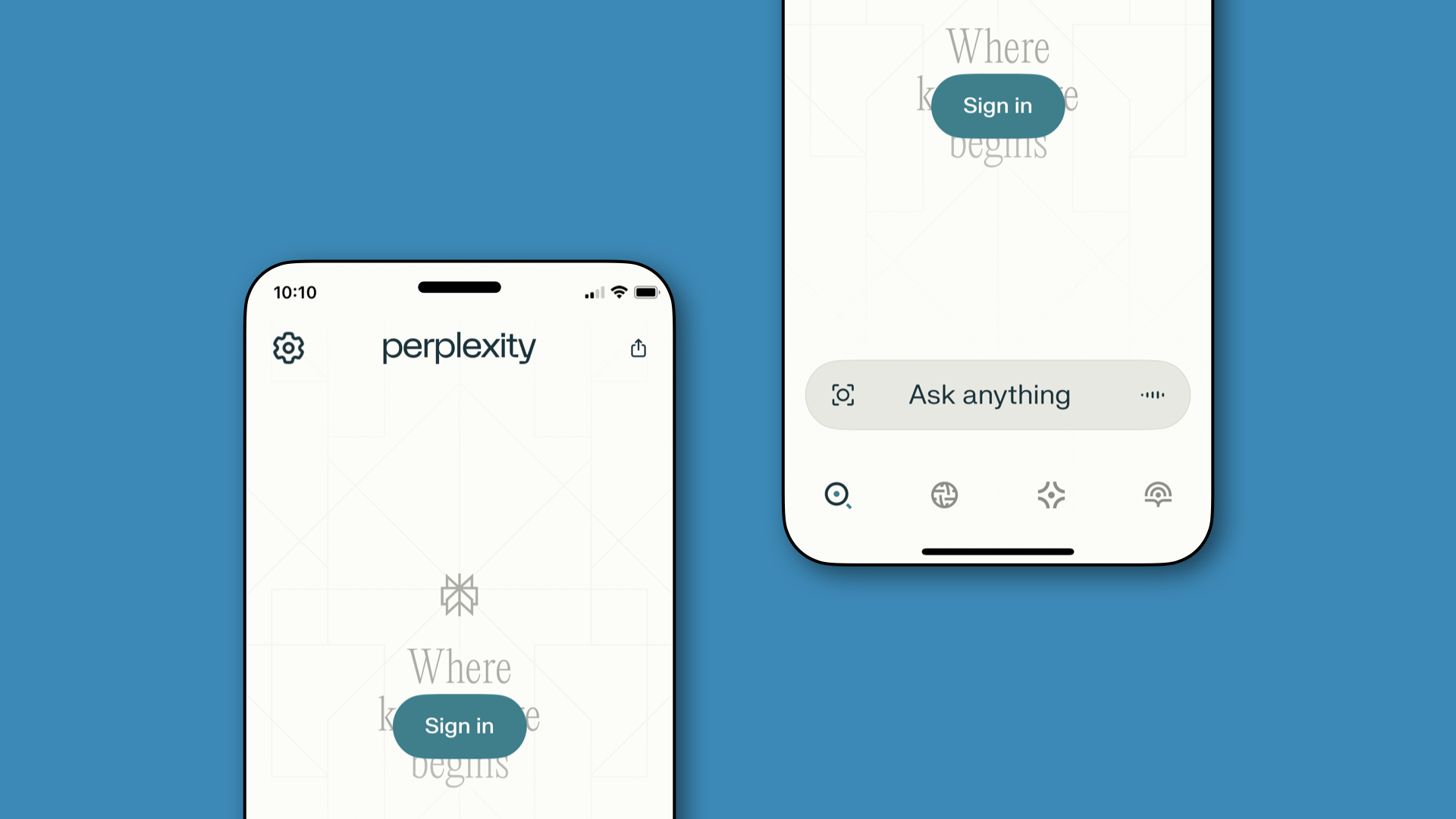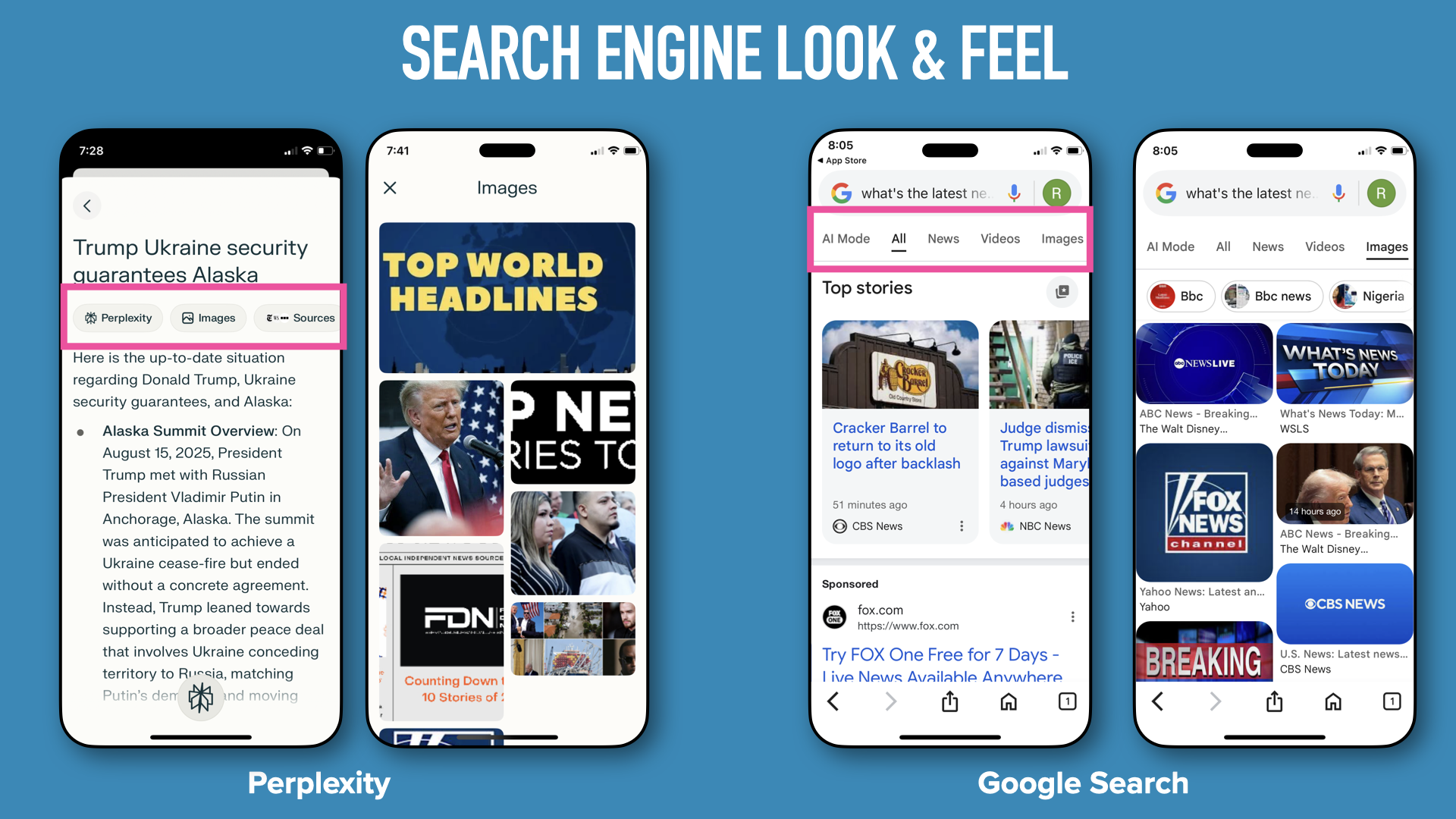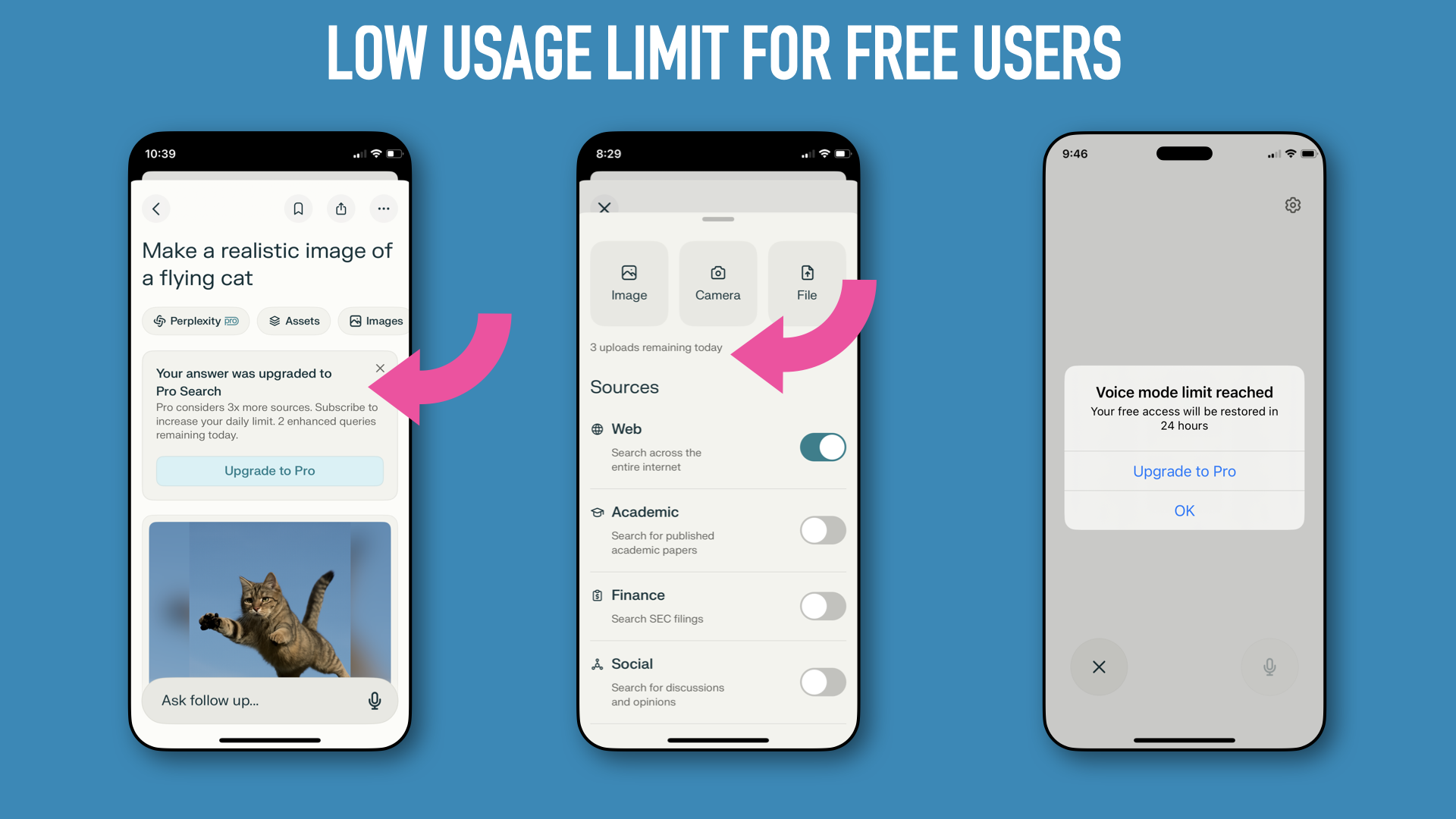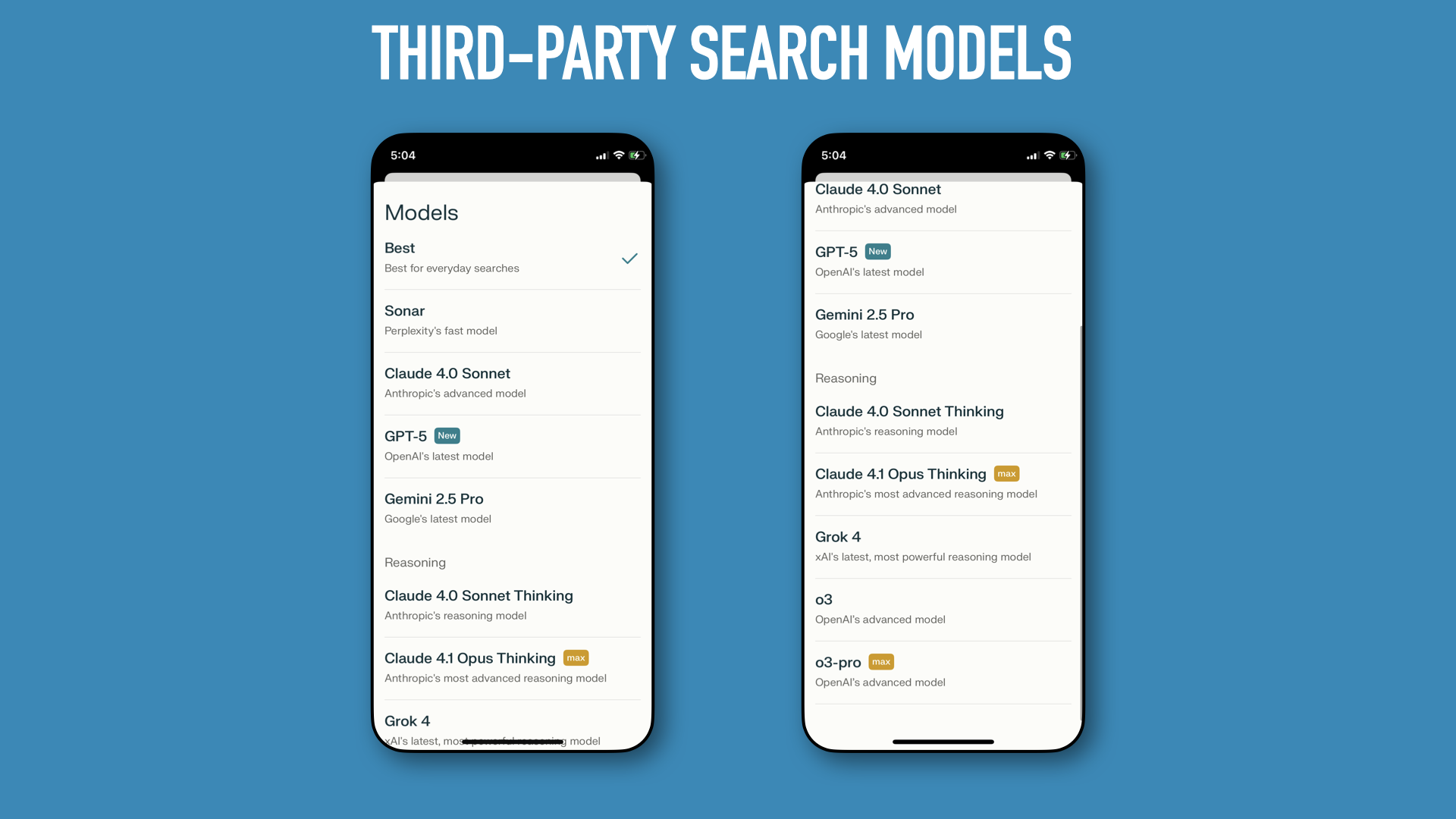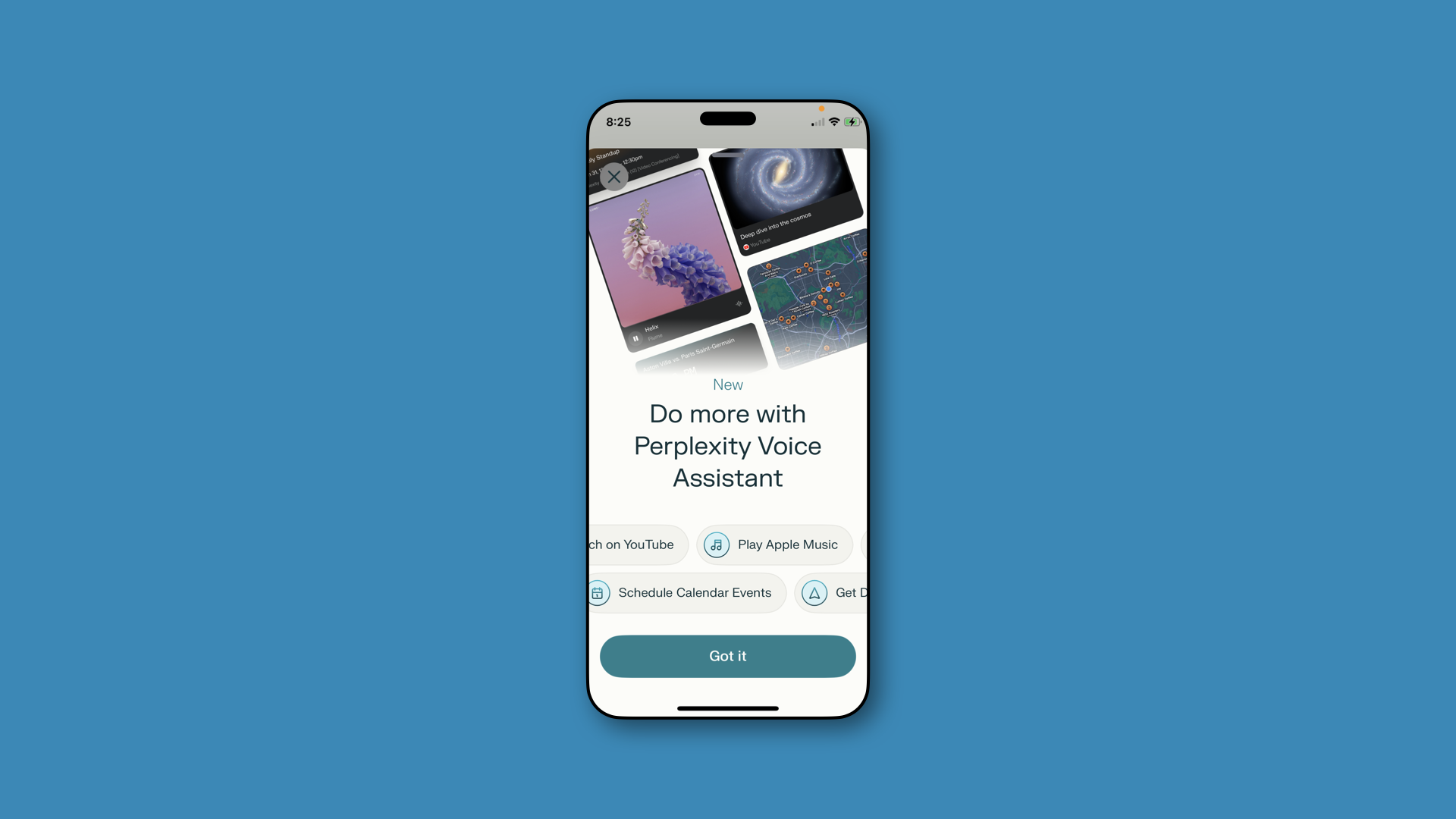Perplexity AI
After two weeks with Perplexity, two lessons stood out: UX can drastically shape how we experience AI, and building new use cases fast is essential — especially if you don’t have a moat and depend on other APIs.
Note:
This post is part of my “Exploring the Landscape of AI Assistants” series — see all the assistants I’ve reviewed.
You can explore the key user flows for Perplexity, Gemini, ChatGPT, Grok, and Claude on Meeako
Something was different
I thought Perplexity was just another AI assistant app. All the examples on its onboarding and marketing pages were very standard — answering questions, performing live web searches, summarizing documents, generating code, and more — just like any other assistant app.
Different UX
I performed the simple task of asking a question — no different from the other apps. But when I got the answer, the layout and UI made me realize this felt different — more like a search response.
AI Powered Search Engine
Later, when I compared it with the Google Search app, I noticed similarities in the UX. It’s fascinating how design alone can drastically change the way we perceive an app, even when the feature set is the same.
Low Usage Limits
Compared to other apps I have reviewed, Perplexity feels the most limiting for free users. It also lacks transparency — it automatically upgrades my answers to Pro Search and then asks me to upgrade to Pro to increase my limits. Overall, it pushes for upgrades more aggressively than the others.
Need for additional Use Cases
Perplexity offers third-party search models such as ChatGPT, Claude, Grok and others. As a user, not sure why I would run ChatGPT or Grok models on Perplexity instead of using their own apps, though some users may find this useful.
But this might also explain why I sense a real urgency for Perplexity to add more use cases — both horizontal and vertical. In today's landscape, live searches powered by LLMs (especially via third-party APIs) aren't enough to stand out or build a defensible moat.
Meanwhile, ChatGPT, Claude, Grok, and Google Gemini all position themselves as everyday personal assistants — compared to Perplexity’s framing as a 'conversational search engine' — yet they’ve already begun offering similar features like live web searches, effectively becoming direct competitors.
This might help explain why Perplexity launched a web browser and partnered with OEMs like Motorola to distribute its Android app.
Building additional Use Cases — Perplexity Voice Assistant
Perplexity's Voice Assistant makes some serious claims on what it can do. It includes:
Write an email
Schedule calendar events
Call a business

